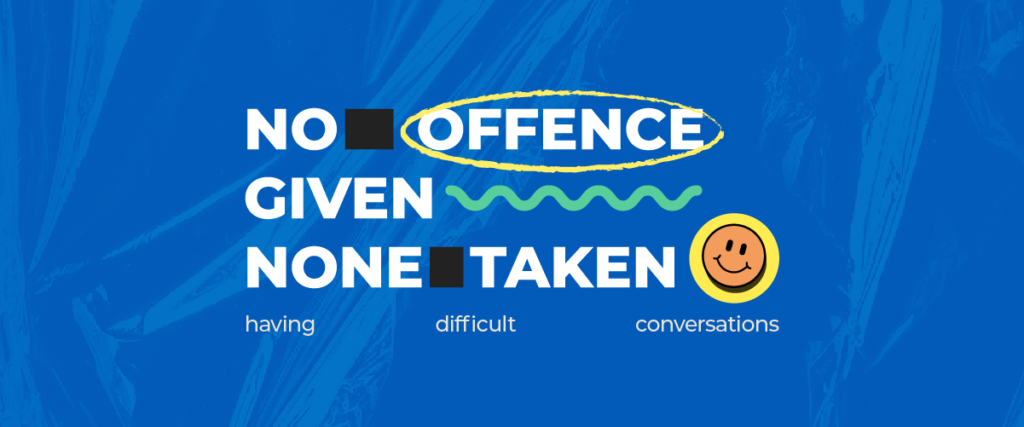
I came across this quote recently, and it gave me a chuckle:
“Having one child makes you a parent; having two makes you a referee; three or more? You’re basically a bouncer.”
Well, I belong in that third category, and depending on what time of the day it is, ‘frustrated bouncer’ would sometimes be a more accurate description.
Broadly speaking, squabbles between siblings, regardless of age, come with the territory! Would we think it’s any less so in other spheres of relational dynamic, be that familial, corporate, or even religious settings? Perhaps not, all interpersonal relationships are susceptible to the threat of things going sour.
Human experience shows that the closer the proximity between people, the higher the chances of conflict or misunderstanding; learning how to navigate those difficult situations therefore becomes a necessary skill in our everyday interactions.
Corporate entities offer training on conflict management at a professional level, and we do well to take advantage of such opportunities as and when required. However, the stakes are higher for those who profess faith in Christ, irrespective of the relational setting. As those called to love God and neighbour, our motivation goes beyond keeping peace for peace’s sake or merely letting sleeping dogs lie.
Whereas our culture largely celebrates the straight shooter who ‘says it as it is’, caring not whose ox is gored; Christ calls us to live at peace with everyone, as far as it depends on us. The idea of living at peace doesn’t necessarily mean that we will always agree with everyone on every matter, neither does it suggest that we passively stand aloof in the face of habitual misconduct, unconscious biases, or even unnoticed blind spots. Rather, it requires some deliberate effort and wisdom to know when to keep silent and when to speak up. It may sometimes mean choosing not to stoke the fire of a potential conflict, while at other times, holding back may prove to be a costlier price to pay.
Sooner or later, we will, out of Christian duty and love, need to broach difficult and uncomfortable conversations, and in those moments, how and why we go about it become the true test of Christian character.
A good place to start would be to ask the question – “What is really at stake – God’s glory/reputation or ours?”
Sometimes, our pride gets in the way, and provides the primary motivation for seeking redress; other times, we would rather not put up with an inconvenience any longer, and so we wield our words solely to secure our personal comfort and benefit.
But what if we looked beyond ourselves to seek the glory of God and the good of others? What if we gave it more time, thought and prayers, rather than ‘a piece of our mind’? What if our goal were more restorative than punitive? What if, in our speech, we sought that delicate balance of grace and truth?
To be clear, none of the above alternatives comes easy, but are they worth some serious consideration? If we are to walk in a manner worthy of our calling, then I would think so.
Having been at the receiving end of a necessary rebuke, wisely and lovingly done, I can tell that while it did hurt in the moment, the long-term effect was well worth the effort. Not only was I helped to see my sin for what it really was, my trust and admiration for the other party grew, knowing that they would risk an established friendship for a greater good of restoring an errant friend.
It’s worth noting that the right environment for such conversations to take place is an atmosphere of mutual trust, grace, and love, where both parties can affirm in good conscience – “No offence given, none taken”. For some relationships, cultivating that environment would be a better starting point.
Safe relationships don’t require such difficult conversations; all they take is to skirt carefully around issues and while at it, make sure not to ruffle any feathers. Not so, meaningful relationships! They are well worth the risk, so don’t hold off on that tricky conversation, but not without the duo of a right motive and a right approach.
Whichever side of the equation we find ourselves, either at the receiving end or the giving end, we are not without hope or help in navigating relational difficulties. May we wear out a path to the throne of grace where there is grace and mercy to help in our time of need. Amen.
Thanks for reading.
Sike Osinuga is a Christian woman learning the ropes of being a godly wife and mother, one wobbly step at a time. An erstwhile Telecoms Engineer, she enjoys reading good books and writing. Her passion is to know Christ and to make Him known. She blogs at http://www.thrivebytheword.com”
